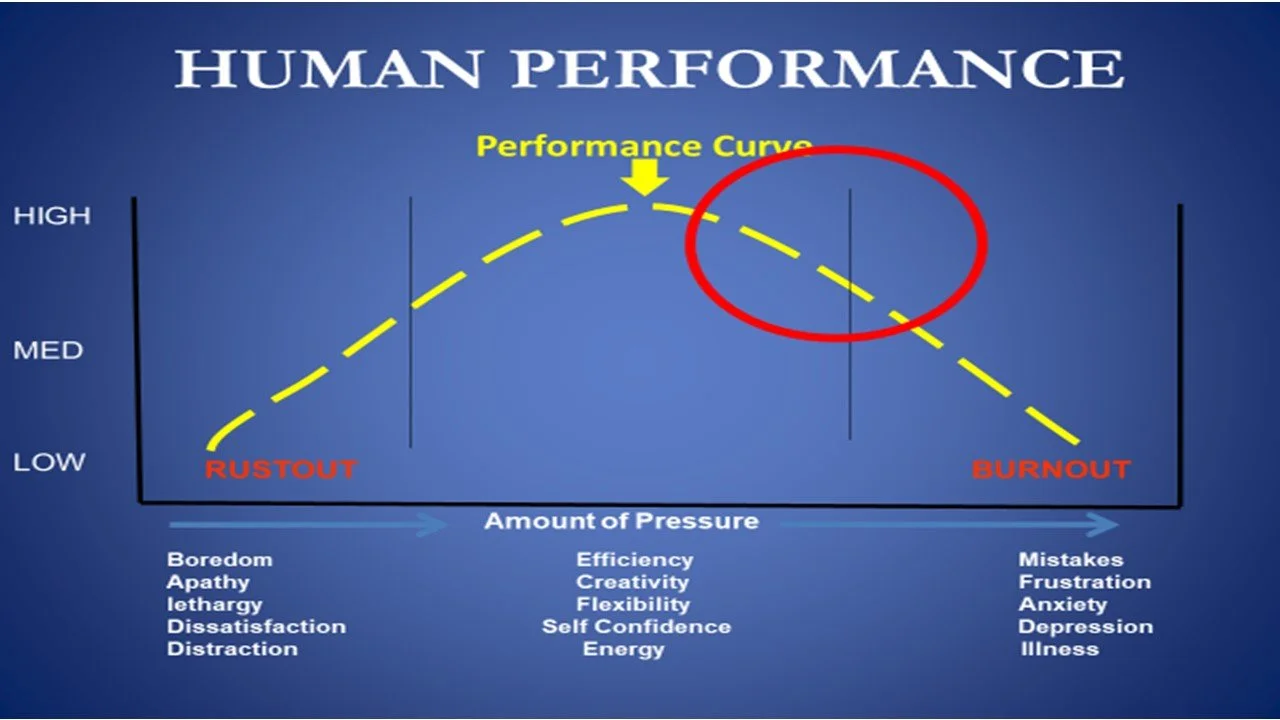
Building Resilience in a Vuca world
Congratulations on Completing your resilience training
ReShape the Future, One team at a Time:
Please see your presentation
Resilience is the capacity to
Prepare for
Overcome
Recover
from Challenge
in whatever format it takes
4 Lessons from the performance curve
1) Constant pressure tends to cause a decrease in performance because of the accumulation of cortisol
2) The secret to increasing performance on the right hand side of the curve is to reduce pressure**
3) The greatest source of pressure is the pressure we put on ourselves
4) Increasing our capacity means we need to learn techniques for decreasing pressure
The three characteristics of Stressors
(anything that increases pressure)
are
Unpredictability
Uncontrollability
Ambiguity
Mentors can have a deeply positive impact on mentees simply by using their experience by using their life and organisational experience to increase predictability, increase a sense of control and reduce ambiguity. Remember sometimes it is a simple insight that might have a large impact.
Lindsay Vonn talks about why high performers fail at the Olympics
Lindsay Vonn shows how taking care of herself and rituals can help exceptional performance
Self care is the fastest way to start building resilience
“Putting the priority back on myself” to win gold
- Lindsay Vonn
Dr Mike Evans shows just how easy it is to do High value recovery
Performance curve self reflection
The performance curve below can be a great tool for all to “start a conversation” about the level of pressure we feel we are experiencing . This tool can used by line managers to gauge the self awareness of their team for 121 conversations. You could ask your reportee to tick where they feel they are on the curve and where they want to be
4 Relaxation/Meditation techniques
These techniques have been proven to reduce cortisol production, improves quality of sleep, improve energy production (mitochondria) and have peen proven to reduce gene expression for oxidative stress (aging) and inflammation. Relaxation and meditation is at the core of fast high value recovery.
We recommend you try all 4 tracks and practice the one you prefer or gives you the most benefit 3/4 times per week
The first track is Progressive Muscular Relaxation (PMR) and is useful for improving sleep and reducing fatigue and muscular tension. Try and lie down to get the full experience
These techniques are invaluable for high value revovery
The second track and the most popular is Autogenic Meditation developed in Germany by two doctors who showed this technique is especially good for digestive disorders, migraine, improves sleep and reduces cortisol
The third track is a sound meditation that was developed with a sound designer to bring you on a sensory/auditory journey that many find very relaxing. For best results use a speaker and listen to the sound with your whole body and not just your ears.
The final technique is visualisation which found popularity after many high performing sports people began utilising the benefits for performance and recovery in the 1970’s. Visualisation is very powerful in helping people recover from certain diseases
Thinking Skills
As discussed from the training how we think can be a source of great pressure pushing us to the right hand side of the performance curve
Below we have a thought’s questionaire to give some insight in any negative thinking patterns you may have and also give you insight into potential discussions with mentees.
Just push the button
Dr Mike Evans gives some great insights into how we think and the impact of thinking styles
Thinking and behaviour
Are very closely linked
Tim Urbane gives a humorous insight into one of the biggest factors that inhibits behaviour change
SLEEP
Sleep is an essential component of a high performing brain
Sleep onset insomnia and early waking insomnia usually happen when we are overly active when going to bed
Practicing a relaxation technique (PMR or Autogenics ) when you go to bed will help
as well as practicing some simple sleep hygiene
Resilient Leadership section
Future Leaders need Resilience to thrive in a high performing environment
Self reflection and self awareness are essential components of a progressive leader
Understanding you own vulnerability is the starting point for self awareness
and reaching out for the support and mentorship which will progresses your career
Brene Brown gives insight as to why vulnerability is a leadership trait
Motivation to Change
Daniel Pink tells us some surprising truths about what motivates us
Inspiration and Connection
Jill Bolte Taylor gives one of the most inspirational speeches in the History of TED Talks using Genuineness and Authenticity and showing how deep connection is a fundamental process for humans
I have included this talk because it is a great example of making the impossible possible. Evelyn Glennie is a deaf percussionist who got accepted into the london school of music demonstrating how challenge + motivation = possibility. She was told she would never be a precussionist. SHe adapted and became the first Deaf person to be accepted into the prestigious school of music
I hope you find these supports both meaningful and inspirational. I hope it provides the insight to approach the mentoring in a way that inspires both you and your mentors and please if you have any questions and/or queries please send them to me ray@resilienceinternational.com
and please remember “Work is too important for us all not to enjoy it”
I have included my linkedin profile below if you wish to connect
Mobile: 0868387136
email: ray@resilienceinternational.com
Ray



